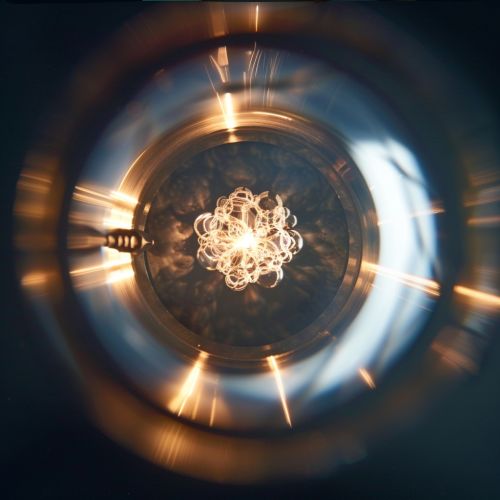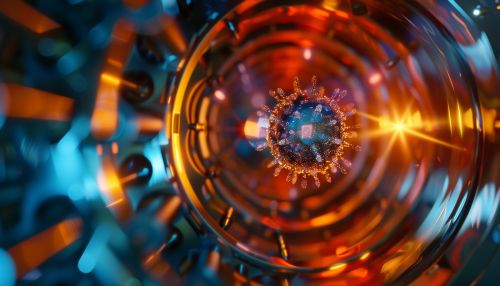Neutrons
Introduction
A neutron is a subatomic particle, symbol n or n0, which has a neutral (not positive or negative) charge and a mass slightly greater than that of a proton. Protons and neutrons, each with masses of approximately one atomic mass unit, are collectively referred to as "nucleons" (particles present in atomic nuclei).


Discovery
The neutron was discovered in 1932 by the British physicist James Chadwick, who received the Nobel Prize for this discovery in 1935. The neutron had been postulated earlier by Ernest Rutherford and others but its existence was not confirmed until Chadwick's experiments.
Properties
Neutrons are electrically neutral particles that, along with positively charged protons, form atomic nuclei. Neutrons and protons are similar in that they have nearly the same mass and experience the strong nuclear force, which binds protons and neutrons together in atomic nuclei.
Mass and Size
The mass of a neutron is slightly greater than that of a proton. This mass difference is due to the difference in the energies of the quarks from which they are composed. The size of a neutron, like that of a proton, is about 0.8 femtometers (fm), which is a unit of length equal to 10^-15 meters.
Charge
Neutrons have no net electric charge. This is because they are composed of three quarks, two down quarks with charge -1/3e and one up quark with charge +2/3e. The charges of the quarks add up to zero, giving the neutron its neutral charge.
Spin
Like all fermions, neutrons have a spin of 1/2. This means that they obey the Pauli exclusion principle, which states that no two fermions can occupy the same quantum state simultaneously.
Interaction with Matter
Neutrons interact with matter in several ways. They can be absorbed by atomic nuclei, causing the nuclei to become unstable and decay. They can also scatter off atomic nuclei, transferring some of their energy to the nuclei. This is the principle behind nuclear reactors, where the energy transferred from neutrons to atomic nuclei is used to generate electricity.
Role in the Universe
Neutrons play a crucial role in the universe. They are a necessary component of atomic nuclei, and the process of neutron capture is a key part of the process of stellar nucleosynthesis, which produces the chemical elements in stars. Neutrons are also involved in certain types of radioactive decay, such as beta decay, which contributes to the natural radioactivity of certain substances.
Neutron Stars
Neutron stars are celestial objects that are composed almost entirely of neutrons. They are the remnants of massive stars that have undergone supernova explosions. Neutron stars are incredibly dense, with a mass of about 1.4 times that of the sun but a radius of only about 10 kilometers.
